Battery vs. gas lawnmowers are two common tools to keep your garden clean and neat. The question is: Which suits you best? You cannot use trial and error as these machines cost you a great amount.
Fortunately, it is straightforward to choose the best choice as each has clear pros and cons. If you have no idea, scroll down to learn.
Gas Mower vs. Electric Mower In Detailed Comparison
Motor Power
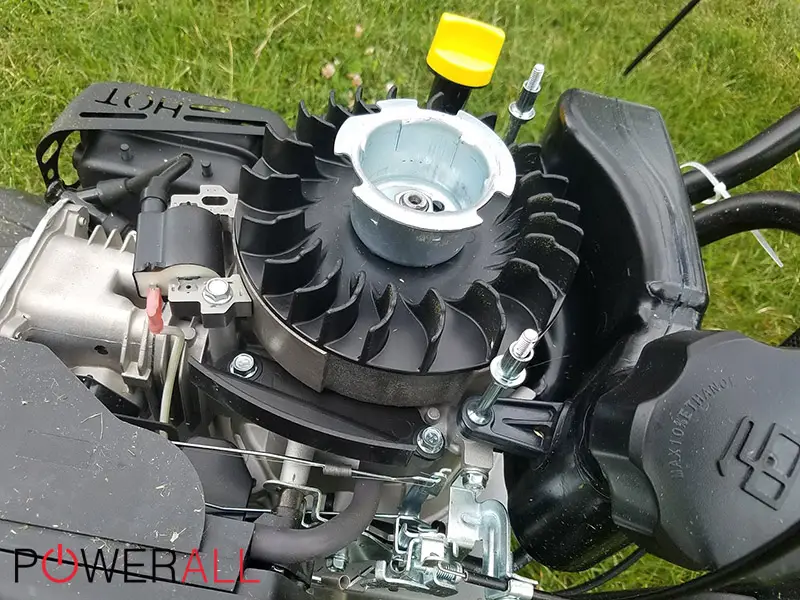
Gas lawnmowers run on a mixture of gas and air. The spark ignites the input and benefits from small-scale explosions to power the engine.
Meanwhile, electric lawnmowers use a carbon brush/magnet to convert energy. Simply put, the magnet interacts with the metal coil to rotate the rotor. Electricity from the socket or built-in battery runs the tool.
Horsepower has the final say here. Some users refer to the maximum torque, but this unit shows the motor’s power at no-load or low load. Regardless of your parameters, electric lawn mower manufacturers often hide these parameters from the public eye.
Due to the lack of data, our analysis in this category is geared toward blade speed and cleaning quality to demonstrate the performance of both products.
One of the plus points of the electric motor is the maintenance of the blade speed according to the needs of users. For example, some advanced technology enables users to adjust the pace from 2800 rpm to 3200 rpm to clean their garden.
However, gasoline engines tend to perform more powerfully. Gardeners prefer it when they have to work with hard and thick lawns.
Run Time
It is not straightforward to decide on the winner because the running time depends on many variables.
Each option has multiple sizes, thus making a difference in runtime. Besides, grass density and operating speed also affect the rate of power loss.
The lawn mower plug-in keeps running unless you disconnect its electric cord from the outlet. Leaving this option aside, experts say gasoline lawn mowers last longer.
Propulsion or self-propelled devices typically run for an hour before they run out of fuel. Meanwhile, a single charge session of the battery motor normally allows for 45 minutes of continuous operation.
Ease Of Use
Undoubtedly, the electric lawn mower takes the crown for its ease of storage and maintenance. All you need for optimal performance are basic checks on the wiring, changing brushes on mortar, and regular cleaning.
Take a stiff brush and clean the cutting floor after each use. Remember to remove small stuck cuts, dirt, or rust.
Once a year, we recommend a thorough inspection of the fuel hoses, nuts, and outer layer. It would help to apply a new coat of paint or rust inhibitor solution if necessary.
Meanwhile, you have a lot more to do with gas-powered mowers. Maintenance routine occurs more frequently and complexly, including blade sharpening, air filter, changes, lubrication, etc.
You must also ensure the correct fuel-to-oil ratio to prevent damage or excessive emissions.
Jumping the engine every week, even when not in use, is also essential, especially in cold climates or for aging equipment.
Owners must also drain the fuel tank at the end of the mowing season to prevent fuel from denaturing and being deposited inside.
Unfortunately, these tasks should be handled by an expert who charges you a lot. DIY is certainly economical, but it voids your warranty.
Noise Output & Environmental Friendliness
Though the gas-powered mower seems to have the advantage in the previous categories, it falls short in this round. First, no one can deny the buzzing gas engine noise.
Things are even worse with older models that can produce sounds up to 95 decibels. Imagine the large displacement motorcycles running in your neighborhood – it isn’t very pleasant.
In comparison, both types of electric motors operate in peace. Their sound pressure ranges between 65-75 decibels – similar to a washing machine.
Another pollutant from gas engines is their carbon footprint. Remove it from your top of mind if you care about environmental issues. This option also contains the risk of fire and explosion due to gas tanks.
Corded mowers exert less pressure on our planet. However, there are ongoing controversies surrounding battery-powered mowers that contain lithium. Some people believe that exploiting this material leaves bad consequences for water resources.
Purchase Price
Take a look at the average price range for the options available in the market, and you can find a suitable investment:
- Plug-in motor: $150 – 250
- Battery motor: $275 – 800
- Gas engine: $350 – 850
The retail price varies according to the model, dimension, and pre-installed functions, but the third option usually charges you the most. Anyway, looking at extra costs in the long run is necessary before purchasing.
Owner’s Costs
In terms of operating costs, two types of electric lawn mowers are well-favored. Wired devices use an average of $15-22, depending on the frequency of use. Battery-powered mowers require an operating cost of $11-18.
Meanwhile, you must save a fixed budget of $20-35 from operating the gas model. So is it the most expensive? This is not even the whole story!
You should know that lithium-ion batteries do not last forever. Users must install a new power supply after a period of use, and it adds to the total operating expense. You must pay $200-400 for a new battery if you cannot benefit from the warranty.
A Short Rundown Of Gas And Electric Lawn Mower
Pros And Cons Of Gas Mower
Pros
- Great power force
- Good durability
- Standardized fuel
- Extended mowing time
- Recommended for wet grass
Cons
- Complicated maintenance
- Dangerous blades require extra attention
- Heavy materials
Pros And Cons Of Electric Mower – Corded
Pros
- Endless working time
- Little maintenance
- Quiet operation
- Economical to afford
Cons
- Control inconveniences and distance limitations with a cord
- Potential risks when working under wet conditions
Pros And Cons Of Electric Mower – Battery
Pros
- Easy maneuverability
- Convenient storage to save space
- No toxic gas emissions
Cons
- Pricey battery replacement
- Time-consuming charging
- Low run time
Verdict: Electric Lawn Mower Vs Gas
The best option boils down to your personal preferences. When you have a large lawn of up to 14,000 square feet, go for cordless mowers. However, the powerful gas engine takes the lead if you want to handle hard/tall grass or finish mowing quickly. It is also a good choice for humid days, freeing you from electrical concerns.
The battery engine usually works for medium lawns under 10,000 square feet. It is best to consider motors with high voltage for long run time. One of its great advantages is user and environment friendliness.
Once you look for the same benefits for small spaces, there is nothing better than corded models. Some homeowners recommend this option for yards under 1,500 square feet. Otherwise, you must purchase an extension cord to connect to the power source.
FAQs
Do Electric Mowers Last As Long As Gas?
Mostly YES. Gas motors often last for 10 years or more. Meanwhile, batteries tend to run out every 5 years, and electric engines maintain ultimate operation for 8-10 years.
Can I Spray My Electric Mower With Water?
Absolutely, NO. Hose off to clean the underside only, but never let water get inside the engine. Water can cause rust or electric shock.
Is It Worth Getting Electric Power?
An electric mower is cost-effective and ideal for small yards. However, weighing your actual needs for the right choice is best.
Is It Ok To Leave An Electric Lawn Mower Outside?
No. It is not recommended. You’d better keep your device from direct heat and water exposure. For long-term storage, do not let it sit on the ground.
Conclusion
Which to choose: gas or electric mower? Considering both sides of each option and comparing it with your mowing needs leads you to the right choice.
Still, it would help if you kept an eye on the engine size as it influences the load and runtime. Ask the seller or specialist for advice should you have any problem choosing.

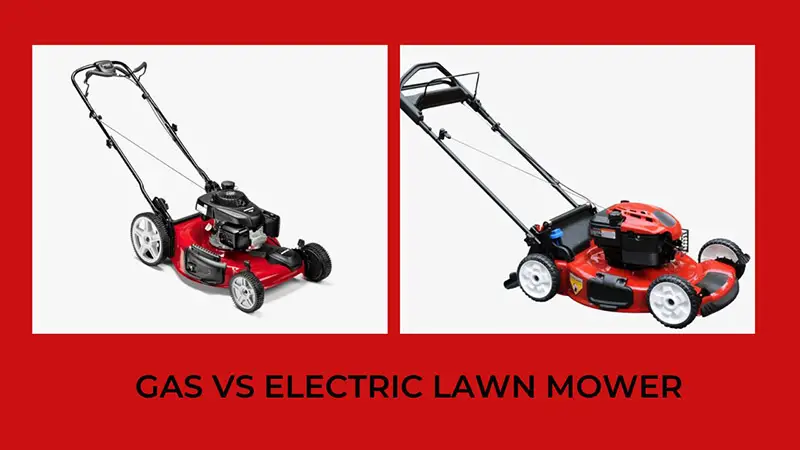

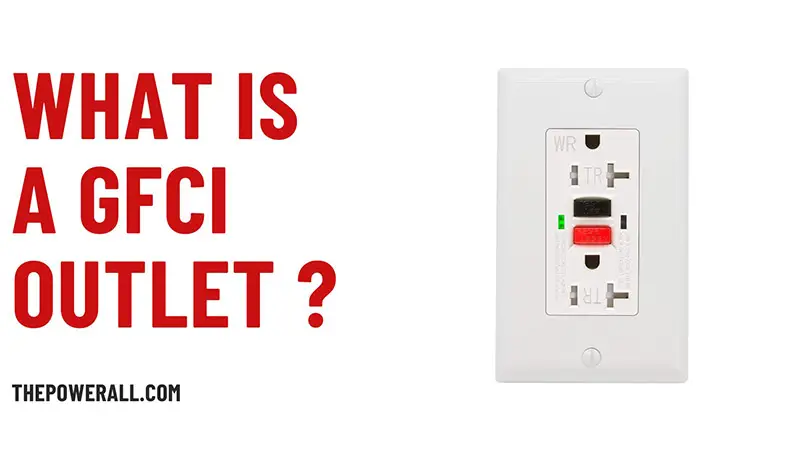
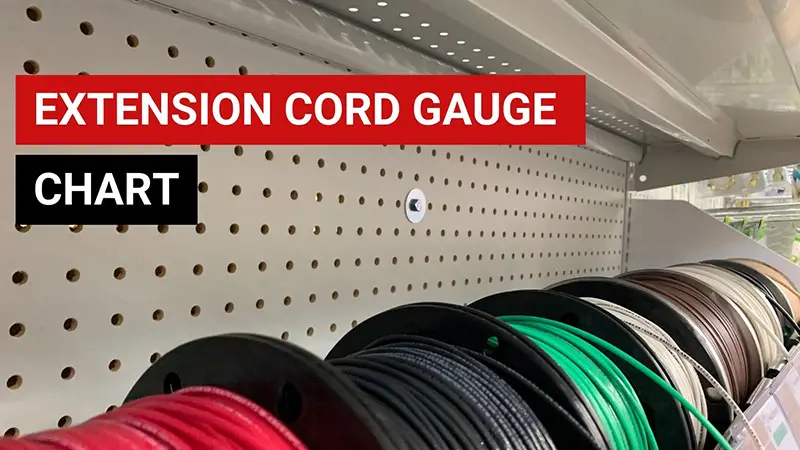
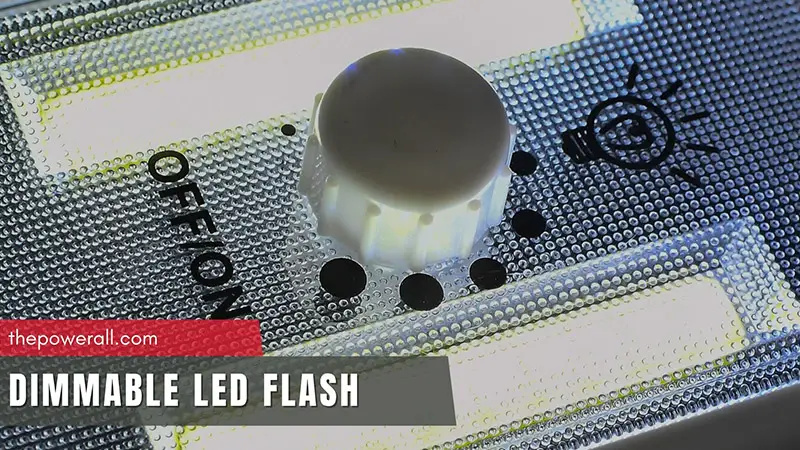


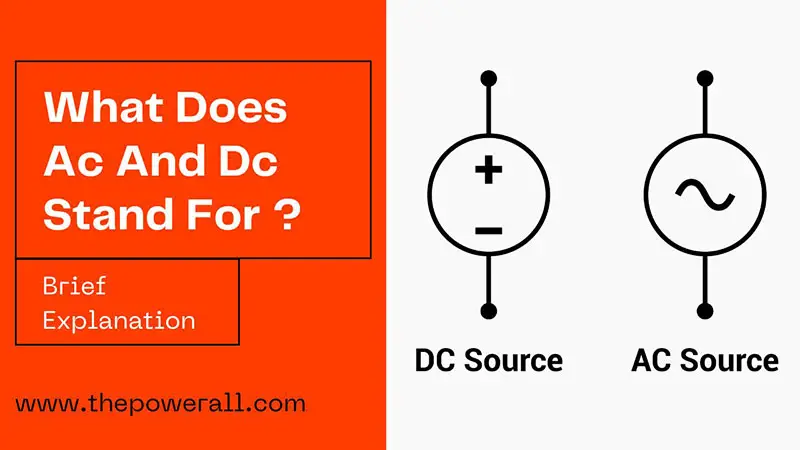
0 Comments